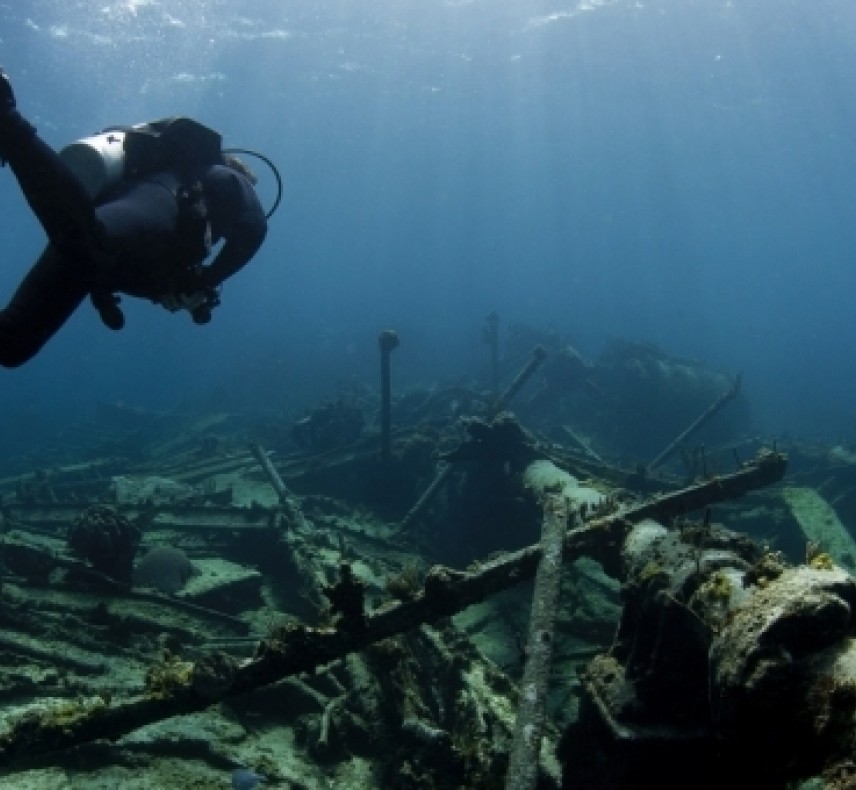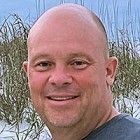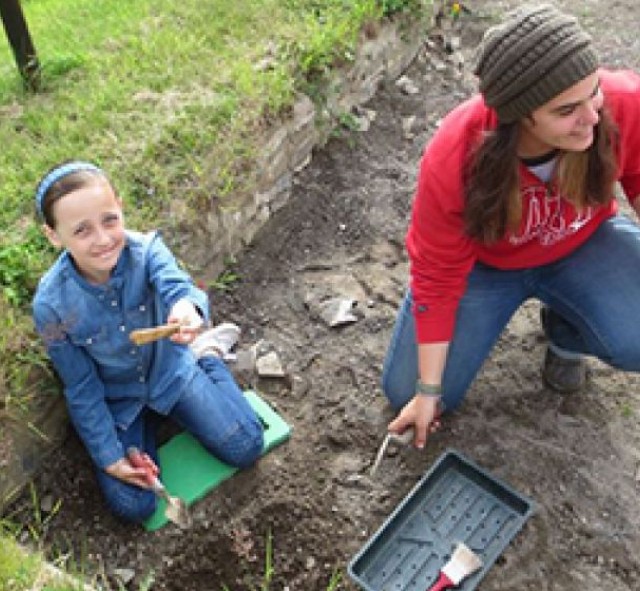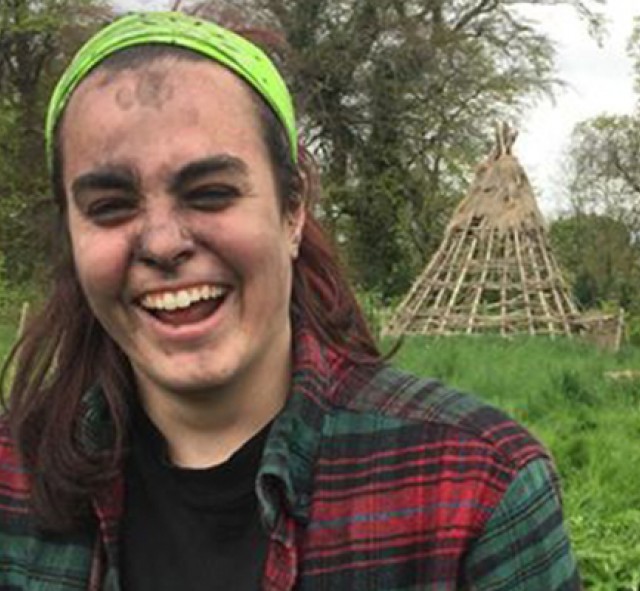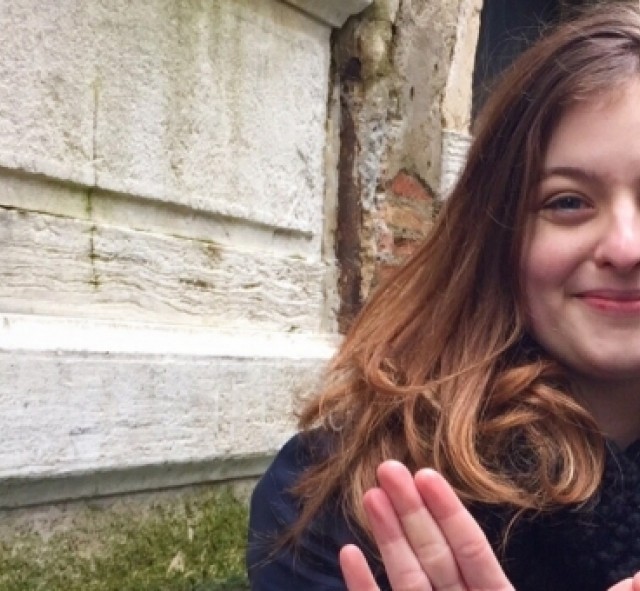Making Dreams A Reality
Lobl is a two-time recipient of a scholarship from the Nancy L. Benco Archaeological Research Fund, which was created by archaeologist and George Washington University professor of anthropology Nancy Benco '66. Scholarships from the fund support Wittenberg students majoring or minoring in history as they conduct research, participate in archaeological field schools, or travel to archaeology meetings.
Another 2016 recipient of a Benco Award for Archaeology is Michael Resko '17. He spent his summer months studying at the Lighthouse Archaeology Maritime Program (LAMP) in St. Augustine, Fla., where he learned field techniques of archaeological testing, excavation and documentation of maritime sites, primarily working on an offshore excavation site of an historical shipwreck that dates back to the 18th century.
Like Lobl, Resko had an interest in archaeology before arriving on campus. He heads into his senior year with big plans for like after college.
"My interest in archaeology began with my passion for studying the history of colonial piracy in the 17th and 18th century," said Resko, a certified diver. "However, I couldn't see myself simply reading books and using only textual sources to work with or argue against other historians.
"I wanted to make my career in history to be more adventurous, and more hands-on. The new archaeology minor gave me that opportunity."
Brooks Hedstrom is following Resko's progress closely, as she does with all of the students enrolled in the archaeology program. She hopes to visit Lobl in Ireland in the future, extending a mentoring relationship that included a well-received presentation at the Midwest Archaeological Conference in Milwaukee, Wisc., in November 2015.
Resko's work off the coast of the Sunshine State was "not only fun, but also very informative," he said.
"It is difficult to describe the feeling when I'm finding historical artifacts that have been right under everyone's nose for more than 200 years. I learned so much from LAMP, I would recommend it to anyone interested in underwater archaeology."
Integrating Archaeology Into Liberal Arts
For Katie Shanor '17, Wittenberg's archaeology program has also built upon educational pursuits and interests cultivated in high school. She arrived on campus at the perfect time, signing up for a new minor that embodies the liberal arts and dovetails perfectly with her primary field of study.
"The program offered at Wittenberg is nothing short of fantastic because the program was designed to cater to the different students interested in the program," Shanor said. "As a biology major, I am able to obtain a minor in archaeology with a mix of biology classes and history classes. From the introductory archaeology class to vertebrate zoology, I have had the opportunity to focus on the aspects of archaeology I want to.
"Each class that I have taken to fulfill the requirements of the minor have given me more than just the essentials to work in the field as an archaeologist but a deeper understanding of what it means to be an archaeologist and the tools to be an educated archaeologist in any field."
Shanor also received a grant from Benco Fund in 2016 and spent part of her summer in tiny Kampsville, Ill., home to just 328 residents but also the Center for American Archaeology (CAA), where renowned Arizona State University professor Jane Buikstra is conducting research that builds upon her groundbreaking work in the developing field of bioarchaeology. Shanor is studying human skeletal remains dating back to prehistoric Native Americans that have been unearthed in Kampsville.
"What makes the Wittenberg archaeology program even more special is the endless opportunities we have to gain real experience," Shanor said. "In addition to gaining the skills needed to tell the gender and age of an individual or bones, I will be doing an independent research project. From the lecture and lab experience, I will be able to build a biological profile of skeletal remains, as well as gain a better understanding of bioarchaeology and human osteology."
Shanor hopes to attend graduate school and eventually work as a wildlife biologist. She describes professional opportunities as "endless," thanks in part to her studies in both biology and archaeology at Wittenberg.
Heather Toops, who studied at Wittenberg through the university's School of Community Education before graduating in May 2016, visited multiple countries across Europe during her summer to remember. She unearthed the walls of ancient buildings, studied human remains in tombs, and analyzed pottery fragments, and she traveled across Spain, France and Italy, thanks in part to a grant from the Benco Fund.
"I currently work as a correction officer, but I would love to eventually work for the Bureau of Criminal Investigation (BCI) in forensic archaeology," Toops said. "With the experience I gained over the summer on how to sex and age the skeletal remains, I feel I would be able to use this at BCI. I also hope to go to area high schools and give them presentations about my experience to help promote archaeology."
To learn more about Wittenberg's archeology program, visit www.wittenberg.edu.


